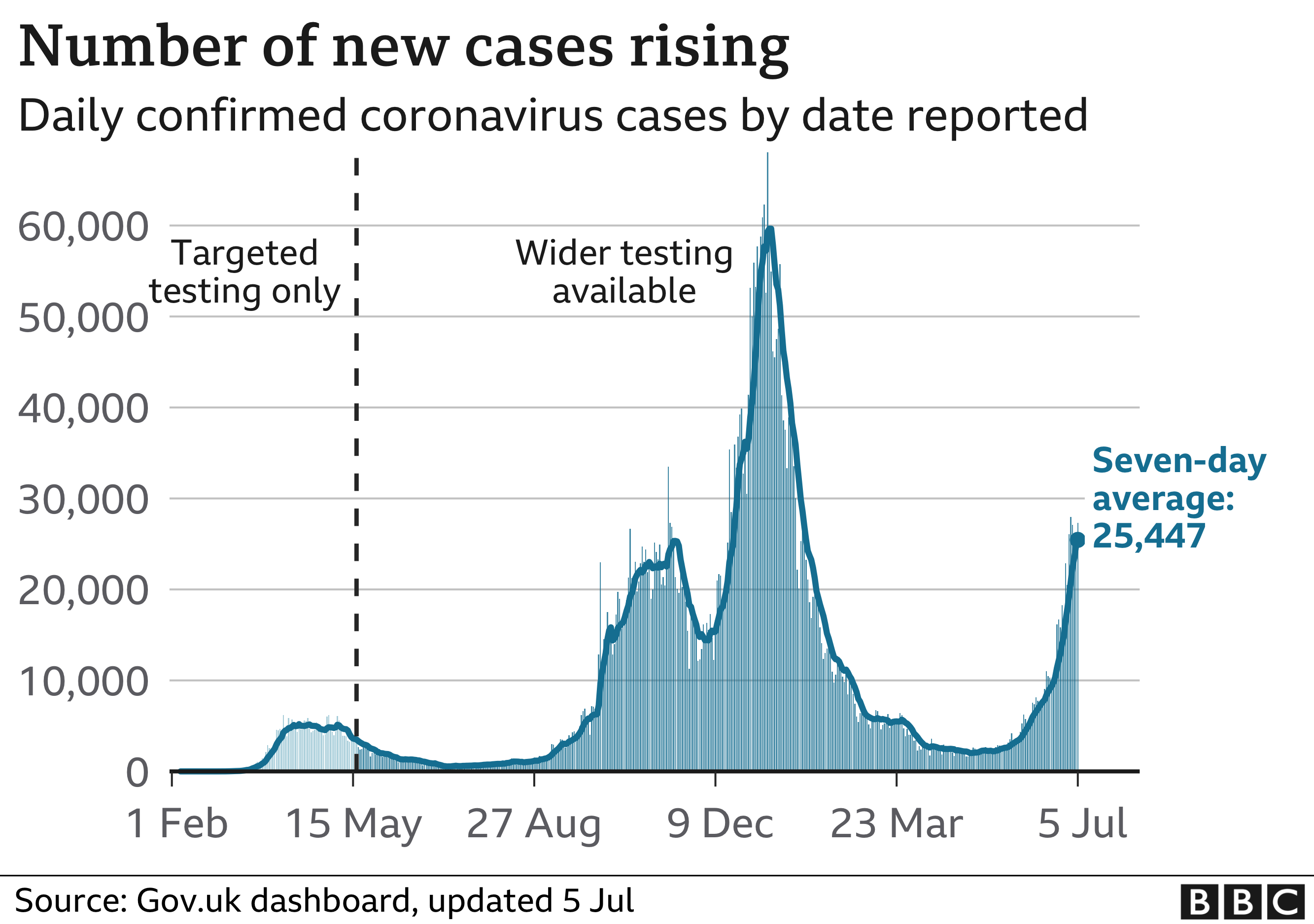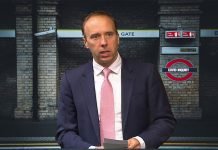People in England who have received two vaccination doses will no longer have to self-isolate if they come into contact with someone who has tested positive for COVID-19 from 16 August.
Making an announcement in the Commons on changes to the government’s self-isolation policy, newly appointed Health Secretary Sajid Javid also confirmed self-isolation rules for those aged under 18 will end on the same date.
Individuals must allow two weeks to pass after having their second jab before they are allowed to be exempt from self-isolating, Mr Javid added.
Fully vaccinated people in England won’t have to self-isolate if a close contact test positive for Covid from 16 August, the health secretary says.
Sajid Javid told MPs the same policy would also apply to anyone under the age of 18 from that date.
In a statement to the House of Commons, Mr Javid said: “From 16 August when even more people will have the protection of both doses, and when modelling suggests the risks from the virus will be even lower, anyone who is a close contact of a positive case will no longer have to self-isolate if they have been fully vaccinated.
“If someone gets their second dose just before or just after 16 August, they’ll need to wait two weeks, after which their second jab can take effect and give them these new freedoms.”
As under-18s are not routinely jabbed, he said a similar exemption from self-isolation rules would be extended to them.
He said adults who had been in close contact with a positive case would be “advised” to get a PCR test as soon as possible to make sure they hadn’t been infected, while for children it would be dependent on their age.
People identified as close contacts of a confirmed Covid case are currently required to self-isolate for up to 10 full days when contacted by NHS Test and Trace.
He added that “of course” anyone that tested positive would have to self-isolate whether they have had the jab or not.
Mr Javid said the Transport Secretary Grant Shapps would update MPs this week on how to “remove the need for fully-vaccinated arrivals to isolate when they return from an amber list country”.
Earlier, the health secretary told BBC Radio 4’s Today programme he would expect cases numbers by 19 July to be “at least double” what they were now “so around 50,000 new cases a day”.
“As we ease and go into the summer we expect them to rise significantly and they could go as high as 100,000 case numbers,” he added.

The government would give more details this week on self-isolation rules for international travel, he added.
“This new approach means we can manage the virus in a way that is proportionate,” Mr Javid said.
Education Secretary Gavin Williamson has also announced the end of the “bubble” system in schools, which has led to large numbers of pupils being sent home if a single child has a positive test, from 19 July.
Covid-related pupil absence in England has hit a new high since all students returned to school in March.
On Monday, the prime minister confirmed he intended to scrap most of the remaining restrictions in England on 19 July, including the laws on mask wearing and rules on social distancing.
Earlier, Mr Javid said daily cases “could go as high as 100,000” when restrictions were fully lifted.
Labour have accused the government of being “reckless” by aiming to remove the majority of measures in two weeks’ time, while Mr Johnson was criticised for scrapping legal requirements on face masks.
Shadow health secretary Jonathan Ashworth said Mr Javid had justified allowing infections to climb by pointing to the UK “building a protective wall” of vaccines.
However, Mr Ashworth said the “wall is only part built”, and data from Israel suggested that the infectious Delta variant could be transmitted through fully vaccinated people.
He said he “understood the rationale” for Mr Javid’s announcement but believed that the “biggest barrier to an effective isolation policy” was a “lack of financial incentive to stay at home”.
He also called for a U-turn on the decision to make mask-wearing voluntary, saying: “Yes, let’s have freedom but not a high-risk free-for-all – keep masks for now, fix sick pay, and let’s unlock in a safe and sustainable way.”
Support Independent Journalism Today
Our unwavering dedication is to provide you with unbiased news, diverse perspectives, and insightful opinions. We're on a mission to ensure that those in positions of power are held accountable for their actions, but we can't do it alone. Labour Heartlands is primarily funded by me, Paul Knaggs, and by the generous contributions of readers like you. Your donations keep us going and help us uphold the principles of independent journalism. Join us in our quest for truth, transparency, and accountability – donate today and be a part of our mission!
Like everyone else, we're facing challenges, and we need your help to stay online and continue providing crucial journalism. Every contribution, no matter how small, goes a long way in helping us thrive. By becoming one of our donors, you become a vital part of our mission to uncover the truth and uphold the values of democracy.
While we maintain our independence from political affiliations, we stand united against corruption, injustice, and the erosion of free speech, truth, and democracy. We believe in the power of accurate information in a democracy, and we consider facts non-negotiable.
Your support, no matter the amount, can make a significant impact. Together, we can make a difference and continue our journey toward a more informed and just society.
Thank you for supporting Labour Heartlands











